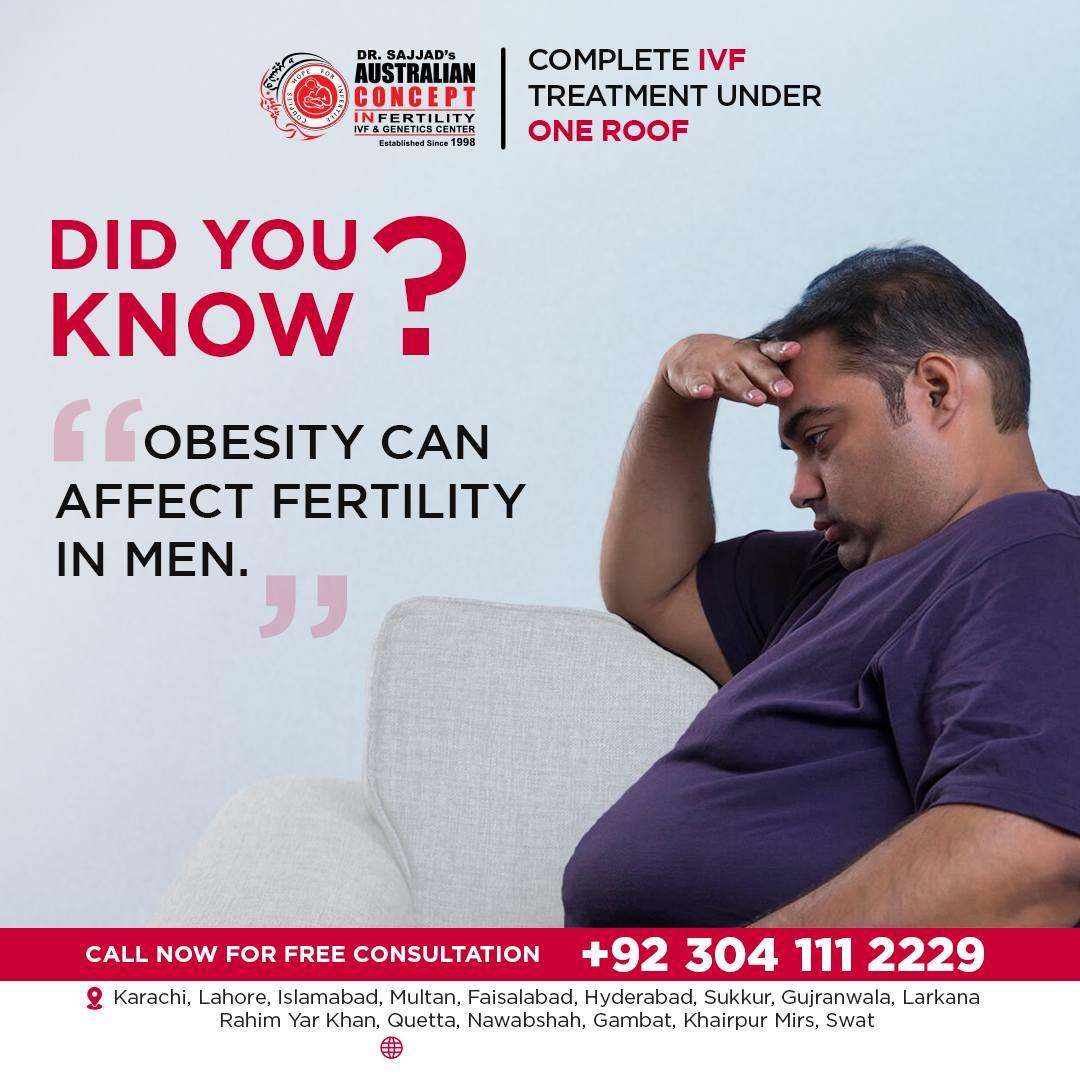The Impact of Obesity on Male Fertility

Obesity has become a global health concern, affecting millions of people worldwide. While it is widely known that obesity can lead to various health issues, its impact on male fertility is often overlooked. Male infertility is a growing issue, and understanding how obesity contributes to this problem is crucial for those trying to conceive. This article delves into the ways obesity can negatively affect male reproductive health and offers insights on possible solutions.
Understanding Obesity and Male Fertility
Obesity is defined as having a body mass index (BMI) of 30 or higher. This condition can lead to a range of health complications, including diabetes, hypertension, and cardiovascular disease. In terms of male fertility, obesity can have significant consequences on reproductive functions. Studies have shown that men with a higher BMI often experience lower fertility rates compared to those with a healthy weight.
Sperm Quality
One of the primary ways obesity impacts male fertility is through sperm quality. Research indicates that overweight men may have lower sperm counts, decreased motility, and poorer morphology. These factors are crucial for successful conception, as sperm must be able to swim efficiently to reach and fertilize an egg.
A 2019 study found that men with obesity had 20% lower sperm concentration compared to those with normal weight. Moreover, increased body fat can lead to higher temperatures in the testicular area, which is detrimental to sperm production. The combination of these factors contributes significantly to infertility issues among obese men.
Hormonal Imbalances
Obesity can disrupt the delicate hormonal balance necessary for reproductive health. Fat tissue produces estrogen, which can lead to an imbalance between testosterone and estrogen levels. Testosterone is crucial for sperm production and male sexual function. When testosterone levels drop, it can result in reduced libido, erectile dysfunction, and diminished sperm production.
Additionally, obesity may lead to insulin resistance, further exacerbating hormonal imbalances. Elevated insulin levels can decrease sex hormone-binding globulin (SHBG), a protein that helps regulate testosterone levels. The resulting increase in estrogen levels can inhibit sperm production and lead to further fertility issues.
Metabolic Syndrome
Obesity is often linked to metabolic syndrome, a cluster of conditions that increase the risk of heart disease, stroke, and diabetes. This syndrome can also negatively affect fertility. Men with metabolic syndrome may experience reduced testosterone levels, lower sperm quality, and decreased fertility overall. Furthermore, conditions like hypertension and dyslipidemia can impair blood flow to the reproductive organs, affecting their function.
Psychological Factors
The psychological effects of obesity should not be overlooked when discussing male fertility. Men who struggle with obesity may experience low self-esteem, anxiety, and depression. These emotional challenges can lead to decreased sexual performance and further complications in conceiving a child. Seeking help from an infertility specialist can provide support and guidance in navigating these emotional hurdles.
Lifestyle Changes and Solutions
Fortunately, there are several lifestyle changes that men can make to improve their fertility, even if they are dealing with obesity. Here are some actionable steps:
-
Weight Management: Losing weight can have a profound effect on fertility. Studies show that men who lose as little as 5-10% of their body weight can experience significant improvements in sperm quality and testosterone levels.
-
Healthy Diet: A balanced diet rich in fruits, vegetables, whole grains, and lean proteins can improve overall health and support reproductive functions. Foods high in antioxidants, such as berries and nuts, can help protect sperm from oxidative stress.
-
Regular Exercise: Engaging in regular physical activity can help maintain a healthy weight and improve hormonal balance. Aim for at least 150 minutes of moderate aerobic activity each week.
-
Limit Alcohol and Tobacco Use: Excessive alcohol consumption and smoking can further impair fertility. Reducing or eliminating these substances can enhance overall reproductive health.
-
Consult an Infertility Specialist: If you are struggling with infertility, seeking advice from a best fertility clinic in Pakistan can provide tailored treatment options to address your specific situation.
Conclusion
The impact of obesity on male fertility is significant and multifaceted. From affecting sperm quality and hormonal balance to contributing to psychological issues, obesity can create numerous barriers to conception. However, by making informed lifestyle choices and seeking professional help, men can take proactive steps toward improving their fertility. For those seeking assistance, consulting the best IVF centre in Punjab can provide the necessary support and resources for successful family planning.
- Art
- Causes
- Crafts
- Dance
- Drinks
- Film
- Fitness
- Food
- Spiele
- Gardening
- Health
- Home
- Literature
- Music
- Networking
- Other
- Party
- Religion
- Shopping
- Sports
- Theater
- Wellness

